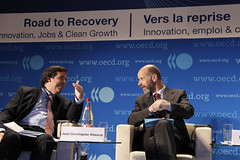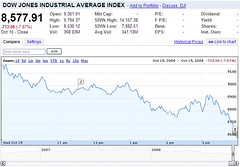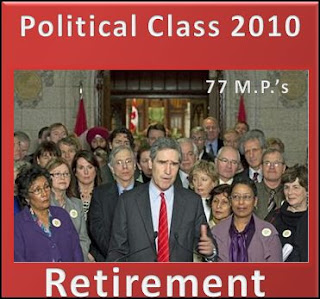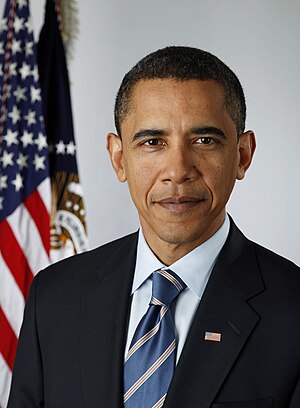 |
| Liberal Photo op, any mention of hydro rates and business taxes? |
"The other guys, the adversaries, think: Just let the market do it," he said. "I believe in a competitive market economy, but I do not believe that compassion just happens. I do not happen to believe that justice just happens. ... It happens because you have compassionate, fiscally responsible government that stands up for the people." - July 31, 2010
Why are the Federal Liberals SILENT on criticizing the high taxes, high hydro rates being charged by the municipal and provincial government? Did the compassionate Liberals miss the fact the same paper that ran his photo op reported the loss of twenty seven jobs and the closing of the production from the dairy on May 20, 2010?
High costs forced Stoney Creek Dairy out Taxes, power bills almost twice what dairy pays in Montreal
High costs forced Stoney Creek Dairy out Taxes, power bills almost twice what dairy pays in Montreal
 |
| Image by zorbs via Flickr |
Michael Ignatieff makes a stop at Stoney Creek Dairy Friday as part of his cross-country bus tour. He gave-out ice cream cones to supporters with Hamilton East Stoney Creek Liberal candidate Michelle Stockwell.
Gaucher's complaints about the high cost of doing business in Hamilton ring true with Brad Clark, Stoney Creek's member of Hamilton city council.
 Hydro and water rates are heavily subsidized in Quebec, he noted, while the Ontario government has forced municipalities to recover the full cost of the service. In addition, property taxes in Hamilton remain about 11 per cent higher than competing Ontario jurisdictions.
Hydro and water rates are heavily subsidized in Quebec, he noted, while the Ontario government has forced municipalities to recover the full cost of the service. In addition, property taxes in Hamilton remain about 11 per cent higher than competing Ontario jurisdictions.
"That's why the vast majority of manufacturing jobs that have been lost in Hamilton have been lost to other jurisdictions," he said. "The cost of doing business in Ontario is still higher and until we do something about that we're going to continue to bleed jobs."
...the production part of the dairy is being closed. The ice-cream parlour has operated separately for the past seven years by Rick Stiles and Cindy Fricke as Hutch's Stoney Creek. That business will continue to rent the front part of the King Street East landmark.- May 20 , 2010
I am curious if those twenty seven production workers were happy to have Ignatieff give out free ice cream to people passing by.
 Hydro and water rates are heavily subsidized in Quebec, he noted, while the Ontario government has forced municipalities to recover the full cost of the service. In addition, property taxes in Hamilton remain about 11 per cent higher than competing Ontario jurisdictions.
Hydro and water rates are heavily subsidized in Quebec, he noted, while the Ontario government has forced municipalities to recover the full cost of the service. In addition, property taxes in Hamilton remain about 11 per cent higher than competing Ontario jurisdictions."That's why the vast majority of manufacturing jobs that have been lost in Hamilton have been lost to other jurisdictions," he said. "The cost of doing business in Ontario is still higher and until we do something about that we're going to continue to bleed jobs."
...the production part of the dairy is being closed. The ice-cream parlour has operated separately for the past seven years by Rick Stiles and Cindy Fricke as Hutch's Stoney Creek. That business will continue to rent the front part of the King Street East landmark.- May 20 , 2010
I am curious if those twenty seven production workers were happy to have Ignatieff give out free ice cream to people passing by.
Related articles by Zemanta
- Walkom: A day with the Liberal Express tour (thestar.com)
- Ignatieff back on road after bus fixed at 'Harper Diesel' (ctv.ca)
- Ignatieff wants to help young Canadians see the world (nationalpost.com)
- Kingston voters school Ignatieff on legislation that matters (theglobeandmail.com)
- "Wind farm opens to cheers, jeers; Turbines the first of many in area" and related posts (wind-watch.org)
- $2.5M Project by Heliene Canada: a Green Energy Act Milestone (cleantechies.com)
- Media Advisory - Photo Op and Media Availability - Ontario's Minister of Energy and Infrastructure Brad Duguid to tour Norfolk County solar project (newswire.ca)
- FP Comment: Ontario's quiet taxes through regulation (network.nationalpost.com)




































